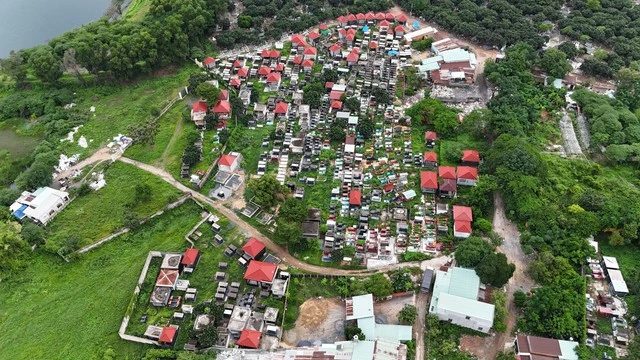 Society
Society


|
| Numerous graves have been built illegally on a 2.5-hectare land parcel in Hóa An Ward in Biên Hoà city in Đồng Nai Province. Photo thanhnien.vn |
ĐỒNG NAI — Biên Hoà city authorities have initiated measures against the unauthorised construction of numerous graves across a 2.5-hectare land parcel in Hóa An Ward, which have been sold to buyers.
The People’s Committee has ordered the Department of Natural Resources and Environment to collaborate with the People’s Committee of Hóa An Ward and other relevant agencies to verify and clarify the information.
Local media have reported that the illegally constructed graves, each ranging from three to five square metres in size, have been sold at prices between VNĐ50 million and VND60 million per grave.
For larger graves, designed as burial houses and complete with concrete pillars, tiled roofs, and enclosed by iron fences, measuring between 12 and 15 square metres, prices can exceed VNĐ100 million.
While many graves have already been occupied, others remain unoccupied but are secured by owners who obtained them through illicit dealings with the violators.
Preliminary assessments show that transactions of these illegal graves have been conducted through “informal agreements” rather than formal notary services.
The illegally built graves are situated adjacent to the former Hóa An Cemetery, which is no longer in operation as a burial site.
Nguyễn Thanh Phú, head of the Biên Hòa Urban Management Department, said: “Initial assessments have uncovered evidence of land use violations.”
“These land parcels are not designated for cemetery use in accordance with urban planning regulations,” he noted.
Land use violations in Việt Nam continue to pose significant challenges, potentially leading to environmental degradation, the loss of agricultural land, and social conflicts within communities.
Analysts have called for the stricter enforcement of regulations and enhanced public awareness among government agencies, local communities, and stakeholders to promote responsible land use practices. — VNS




